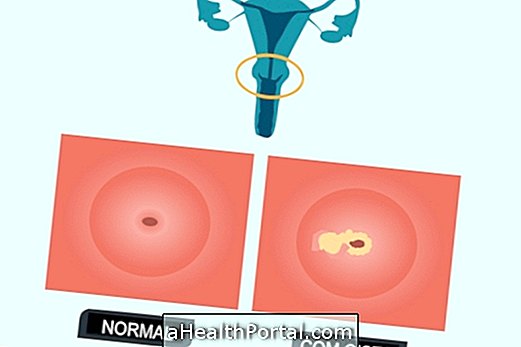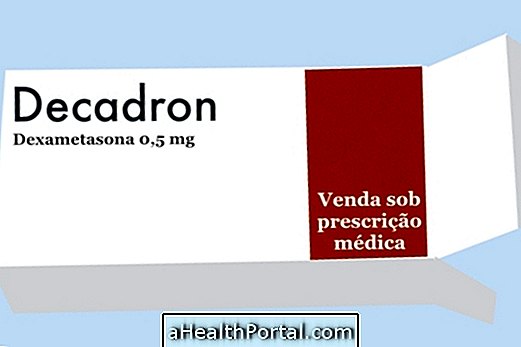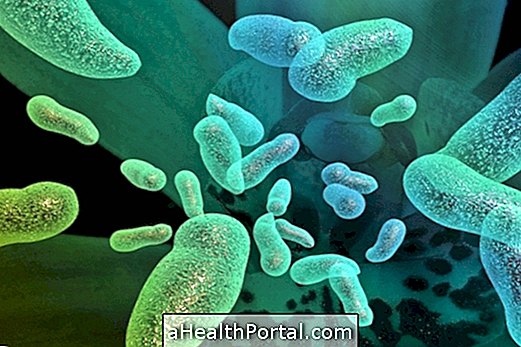Anti-ulcer medications are those that are used to decrease the acidity of the stomach and thus prevent the onset of ulcers. In addition, they are used to cure or facilitate healing of the ulcer and to prevent or treat any inflammation in the mucosa of the gastrointestinal tract.
An ulcer is an open wound that forms in the stomach that can be caused by different conditions such as poor diet and infection by bacteria, for example, and can cause stomach pain, nausea and vomiting. Anti-ulcer medications are indicated by the gastroenterologist depending on the cause of acidity and ulcer, with Omeprazole and Ranitidine being the most recommended.

Main anti-ulcer medications
Omeprazole is one of the main drugs prescribed by the gastroenterologist to treat and prevent gastric ulcers because it works by inhibiting the proton pump, which is responsible for the acidity of the stomach. The inhibition promoted by this drug is irreversible, having a longer lasting effect in relation to other medicines. This medicine can also lead to mild and reversible side effects and should be taken in the morning on an empty stomach or as directed by a doctor.
Ranitidine, Cimetidine and Famotidine are also anti-ulcer medicines that may be recommended by your doctor as they decrease the acidity of the stomach and make it easier to heal the ulcer. The main side effects associated with the use of this medicine are dizziness, drowsiness, insomnia and vertigo.
Another drug that may be indicated by the gastroenterologist is Sucralfate, which acts by creating a barrier over the ulcers, protecting them from gastric acidity and promoting healing.
It is important that these medications indicated by the doctor according to the signs and symptoms presented by the person and used as directed.
When to take
Anti-ulcer medications are recommended by the gastroenterologist in case of:
- Stomach pain, which can have several causes, including gastritis and excess gas. See what the main causes are and how the treatment is done for stomach pain;
- Ulcer, which is formed when there is some change in the mechanism of protection of the stomach against gastric acidity. Understand how the ulcer forms;
- Gastritis, in which there is inflammation of the walls of the stomach;
- Ulcerative gastroduodenal disease, in which there is an injury of the gastric mucosa due to the action of the enzymes and acid of the stomach.
- Reflux, in which there is the return of the contents of the stomach to the esophagus, causing pain and inflammation;
- Duodenal ulcer, which is the ulcer in the duodenum, which is the upper portion of the small intestine;
- Zollinger-Ellison syndrome, which is characterized by burning sensation or sore throat, weight loss with no apparent cause and excessive weakness.
Depending on the symptoms, the doctor indicates the medicine with the most appropriate mechanism of action for the situation, and may be a proton pump blocker or gastric mucosal protectors, for example.



















